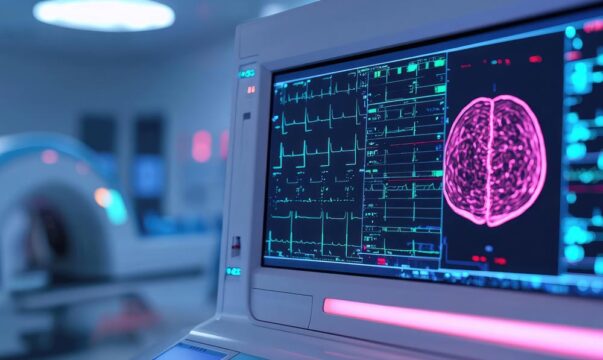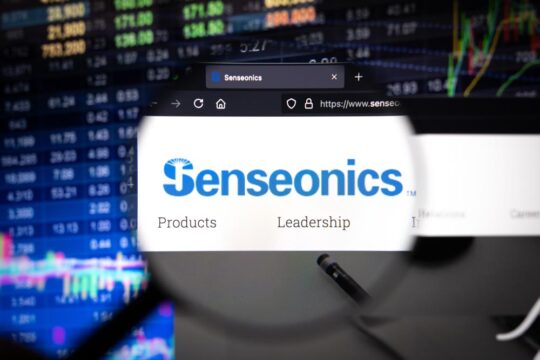Advertisment
ESCP 2017: Innovations in fistula management: stem cell therapy
By Maria Dalby (article) and Peter Mas Mollinedo (interviews)
In an overview of the immunological rationale for, and clinical application of adipose-derived mesenchymal stem cell (MSC) therapies, Dr Nick Powell predicted that clinicians treating patients with perianal CD are going to be early uptakers of these therapies as they transition into clinical practice.
Dr Nick Powell (Guys and St Thomas’ Hospital, London) and Mr Phil Tozer (St Mark’s Hospital, London) presented a gastroenterologist and surgeon perspective on the future of stem cell therapy in perianal Crohn’s disease.
Unlike embryonic stem cells, which have enormous differentiation potential but are surrounded by ethical challenges, MSCs are easy to harvest and are entirely uncontroversial.1 MSCs are fibroblast-like cells which can be isolated from bone marrow, muscle, fat, dermis, and umbilical cord tissue and are capable of differentiating into different stromal cell lineages.2, 3 The collection of MCSs can be autologous or allogeneic; the latter option being preferable in CD as expansion of autologous MSCs may take up to 3-4 months.
The main focus when stem cell therapy has been making headlines in recent years has been its potential for tissue repair; however, MSCs also possess potent anti-inflammatory and immunomodulatory characteristics which provide a strong rationale for use in inflammatory disease. Adipose-derived MSCs have been shown to ameliorate the clinical and histopathologic severity of colitis in mice through a multifactorial immunoregulatory mechanism which includes expansion of regulatory T cells with subsequent downregulation of inflammatory cytokines and chemokines and increase in interleukin-10 levels, as well as induction of effector T cell apoptosis and suppression of dendritic cell maturation.4
In a pioneering study to evaluate the concept of MSCs for treating complex perianal fistulas in CD, 49 patients were randomised to intralesional administration of autologous adipose-derived MSCs or placebo, with fibrin glue and adjunctive surgery.5 The primary analysis showed that 71% of patients in the MSC arm had healed (complete absence of drainage and re-epithelialisation of the fistula opening) after 8 weeks, compared with only 16% in the fibrin glue-only arm.5
Outgoing ESCP President, Professor Emmanuel Tiret (Saint-Antoine Hospital, Paris, France), Professor Jared Torkington (University Hospital of Wales, Cardiff) and Professor Martin Kreis (Charité University Medical Centre, Berlin, Germany) also give their opinions on this new therapy.
A study which utilised autologous bone marrow-derived MSCs showed a significant reduction in the CD and perianal disease activity indexes from baseline (p<0.01 for both) and, interestingly, improvement of luminal disease which in Dr Powell’s opinion reflects the potent immunoregulatory effects of MSCs. Together with the 50% complete remission rate observed with allogeneic adipose-derived MSCs in a recent phase III trial, stem cell therapy looks set to become a real game changer in the management of perianal CD.
References
- NAS. Understanding Stem Cells. Available at http://dels.nas.edu/resources/static-assets/materials-based-on-reports/booklets/Understanding_Stem_Cells.pdf. USA.
- Ma S, Xie N, Li W, et al. Immunobiology of mesenchymal stem cells. Cell Death Differ 2014;21:216-25.
- Singer NG, Caplan AI. Mesenchymal stem cells: mechanisms of inflammation. Annu Rev Pathol 2011;6:457-78.
- Gonzalez MA, Gonzalez-Rey E, Rico L, et al. Adipose-derived mesenchymal stem cells alleviate experimental colitis by inhibiting inflammatory and autoimmune responses. Gastroenterology 2009;136:978-89.
- Garcia-Olmo D, Herreros D, Pascual I, et al. Expanded adipose-derived stem cells for the treatment of complex perianal fistula: a phase II clinical trial. Dis Colon Rectum 2009;52:79-86.





